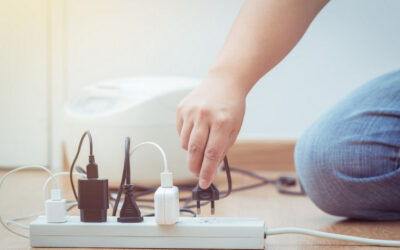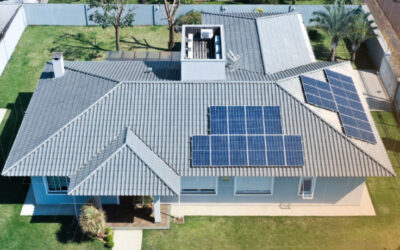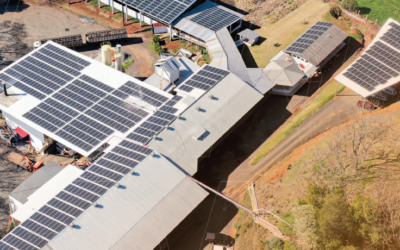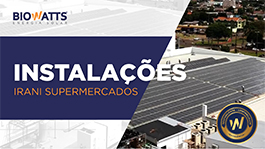ALL ABOUT
ALL ABOUT PHOTOVOLTAIC SOLAR ENERGY
Energia solar: uma vacina para a bandeira vermelha e para o risco do racionamento
O atual cenário de falta de água nos reservatórios hidrelétricos e uso intenso das termelétricas fósseis, caras e poluentes, traz um sinal de alerta no setor elétrico: é hora de acelerar o uso de fontes renováveis e limpas, para diversificar a oferta e fortalecer a segurança de suprimento elétrico do Brasil.
Brasil atinge marca de 700 mil consumidores com geração própria de energia a partir da fonte solar, diz Absolar
Um levantamento feito pela Associação Brasileira de Energia Solar Fotovoltaica apontou que o Brasil acaba de ultrapassar a marca de 700 mil unidades consumidoras com geração própria de energia a partir da fonte solar.
Energia solar atinge marca histórica em capacidade instalada no Brasil
Segundo associação, Brasil entrou para o grupo dos 14 países com maior potência de geração desse tipo de energia.
FAQ
Frequently Asked Questions
Solar energy: How does it work?
After harnessing sunlight, solar energy is directed to the solar inverter, where it is converted into the electric energy used in the installation’s electric grid. That’s how energy is generated through the photovoltaic effect.
Why is solar energy important?
Photovoltaic energy is constant and renewable, so there’s no damage to the environment, as it doesn't need a large installation area. Its residues are eliminated to avoid pollution, deforestation, and other negative impacts. This is the most sought-after option because solar energy helps preserve the environment, being clean, renewable, and bringing numerous other benefits.
Why use photovoltaic solar energy?
It’s a fact that your electricity bill costs are significantly reduced when you use photovoltaic solar energy. This means that if you don’t use all the energy generated, the system will supply its surplus to the energy grid and be turned into energy credits that can be used in up to 60 months.
How does solar energy work when it rains?
As expected, a lower amount of solar energy is produced on rainy days than on sunny days. This is because solar panels need direct sunlight, meaning less solar energy is produced on rainy days. However, this doesn't mean that your photovoltaic system will stop working altogether. Moreover, rain contributes to the maintenance of your solar panels by removing dirt and other elements that might impair their operation. So, even with the low light caused by rainy weather, your system will continue to work, though more slowly.
Does solar energy work on cloudy days?
As happens on rainy days, there's also a drop in the generation of solar energy on cloudy days. Cloud formation reduces the amount of sunlight that reaches the solar panels, minimizing the production of energy. However, solar panels have been developed especially for situations like this, being able to take advantage of the reduced amount of sunlight caused by clouds. As such, with the generation of energy produced by the sun behind the clouds, regular use of energy produced by the sun behind the clouds becomes easier.
Why is installing solar energy worthwhile?
In addition to its easy installation, the solar energy system ensures efficiency, security, and savings by the very fact that it generates electricity. The energy source is thus collected simply and quickly by means of a renewable resource (sunlight) and then converted into electrical energy for your property. This makes solar energy worthwhile, as it is a sustainable, economical, and clean option.









































